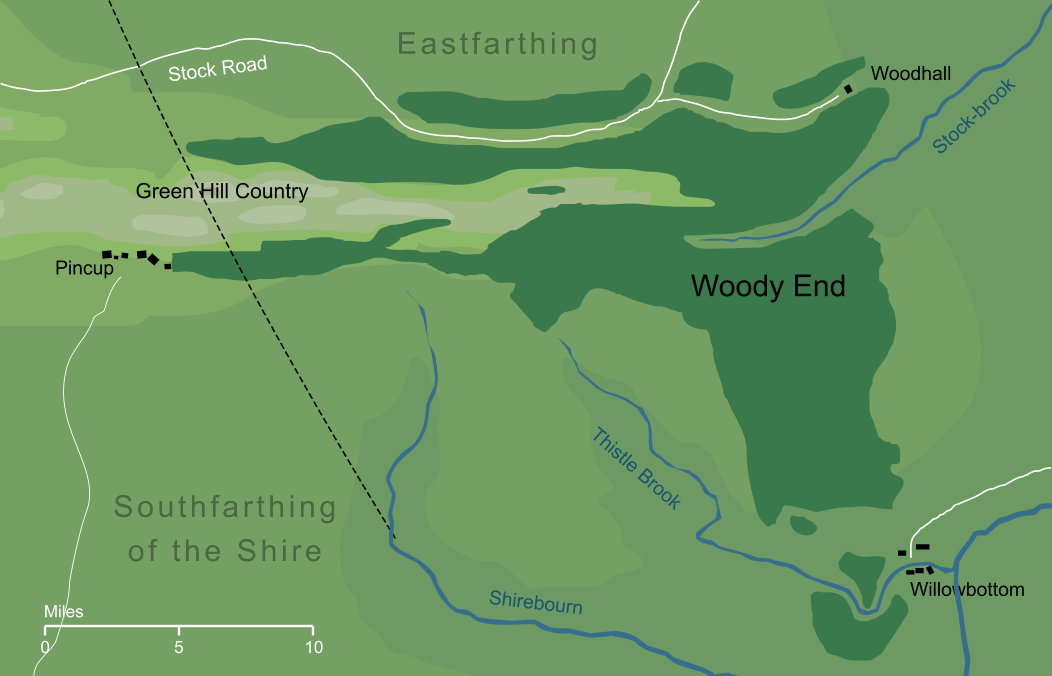- Cities and buildings
- Fields, plains and deserts
- Forests
- Hills and mountains
- Islands and promontories
- Lands, realms and regions
- Rivers and lakes
- Seas and oceans


 |
||||||
|


Which personality type are you?
Take the Free mydiscprofile Personality Test to discover your core personality and your ideal job.   Which personality type are you? |
|
Location
In the southern parts of the Shire's Eastfarthing, extending from the eastern end of the Green Hill Country
Race
Culture
Settlements
Sources
The Stock-brook emerged from the trees of Woody End, as did potentially the Shirebourn and Thistle Brook1
Meaning
Probably simply 'wooded region'2
|
Woody EndThe high woods above the Marish
A broad and densely wooded upland region of the Eastfarthing of the Shire, lying between the Green Hill Country on the west and the Marish on the east. From the hills in the heart of the Woody End sprang the Stock-brook, which ran down eastwards to meet the Brandywine at Stock. The Woody End itself was only sparsely populated, though the village of Woodhall lay among the fringes of the oak forest at its northern edge. This is perhaps the reason why the region was favoured by the Elves, who would travel there at times from Lindon, or pass through from Rivendell and elsewhere on pilgrimages to the Tower Hills. For a time the Woody End had less savoury visitors, too, when a group of ruffians settled there at the time of Sharkey's rule in the Shire. After the Shire-hobbits won back their land, Elves were seen in the Woody End again. In particular, it was here that Frodo Baggins and his fellow Travellers met the Keepers of the Three Rings on 22 September III 3021. From there the companions travelled on to the Grey Havens, and Bilbo and Frodo set sail from Middle-earth aboard the White Ship. Notes
See also...Eastfarthing of the Shire, Green Hill Country, Green Hills, Inglorion, Sharkey’s Men, Stock Road, The Stock-brook, The Yale, Thistle Brook, Willowbottom For acknowledgements and references, see the Disclaimer & Bibliography page. Original content © copyright Mark Fisher 1999, 2001, 2008, 2019-2020. All rights reserved. For conditions of reuse, see the Site FAQ. Website services kindly sponsored by Discus from Axiom Software Ltd.Especially where DISC is used in recruitment, Discus' automated Job Matching can give you an invaluable advantage. |